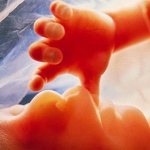Written by Kathy Clubb
It is now eighteen months since the release of the infamous Pew Research poll[1] on the Holy Eucharist, a poll which exposed the staggering ignorance of Catholics regarding the Real Presence of Jesus Christ.
The poll found that only one-third of Catholics believe that the Eucharist is the Body and Blood of Jesus. Most of those in this percentage know of the Church’s teachings on it. Among those who are practising (ie those who attend Mass at least once a week), around 40% don’t acknowledge the Real Presence, 20% of them do not know the Church’s teachings on it and the other 14% are aware of the Church’s teachings but choose to deny them anyway.
Although the poll of 10,000 respondents was conducted in the United States, there is no evidence to suggest that Australian Catholics would think any differently from their American counterparts. Due to the coronavirus, restrictions on in-house Mass attendance have highlighted the many problems on formation and catechesis in Australian dioceses. There is now, obviously, a greater urgency to the need for better catechesis on the Mass and, in particular, on the nature and importance of the Holy Eucharist.
No doubt our readers will have heard anecdotes about Eucharistic abuses that took place during the lockdowns. Some people hijacked consecrated Hosts destined for their ill relatives and distributed them to the whole family. There were stories of well-meaning priests dropping off Hosts to their grateful parishioners. Similarly, there are reports of Catholics consuming unconsecrated hosts at home which they consumed during live-streamed Masses, to make the absence of Holy Communion less painful.
These examples concern faithful Catholics who suffer not from lack of devotion but from impoverished formation; the stories from liberal Catholics are even more startling.
A nun from the Good Samaritans order, Sr Patty Fawkner, wrote that live streamed Masses served to amplify the Church’s image as “clerical and male.”[2] Clearly disliking the faithful being encouraged to ‘watch Fr say Mass’ rather than pray together or perform their own lay-led liturgies, Sr Patty offers the alternative:
“On Saturday evening we conducted a Liturgy of the Word, and because we had a number of hosts in the tabernacle, we could have communion. We chose a sister to lead our celebration. …. After the Gospel …. We sat in silence then turned to each other in small groups, sharing our reflection on the Word. We recited the Creed, prayed our prayers of Intercession, and then picked up the ritual at the Our Father. We received communion and the presider blessed us; we sang our final hymn and departed.”
Sr Patty also relates that she took part in a series of eleven ACBC Plenary meetings via Zoom with more than thirty bishops. The nun’s obvious pleasure at being the only woman amongst the group does call her motives into question: ad majorem feminae gloriam?
One progressive community in London also found that online Mass cramped their feminist style. Members of the Poor Clares monastery in Arkley, North London decided that to watch live streamed Mass was to return to “a pre-Vatican II style of liturgy,”[3] as the post-conciliar ‘active participants’ found themselves reduced to observer status.
The nuns even decided that their Easter Vigil was enhanced by having one of their own sisters ‘bless’ the new holy water “rather than the imposing of some extrinsic quasi-magical quality by an act of power on the part of a cleric” and convinced them that “a woman could preside at the celebrations just as effectively as a man.[4]
As well as substituting online mass attendance with added readings into their Liturgy of the Hours, the nuns “gathered in the Chapter Room, followed the prayers provided for the service in the Missal, distributed our palms, blessed them with Holy Water and formed our usual procession back into the monastic Choir. We then sat round in a circle and did a dramatic reading of the Passion, bringing it vividly to life.Holy Thursday is perennially special in that we always have our own community celebrations. We gather in the Chapter Room in the late afternoon, celebrate being the community that we are, both its positive and its negative aspects.We solemnly proclaim the Foot Washing from St John’s Gospel and then the abbess proceeds washing the feet of each sister and before we wash each others’ feet to fulfill the words of Jesus.”[5]
Confusion and ignorance about the Eucharist, the Mass and the priesthood are not limited to the laity and feminist nuns, of course. Many priests are also victims of poor seminary formation, followed by years of witnessing and performing liturgical abuses. One example will suffice: a priest of fifty years wrote[6] of his hopes for the future of the Church, acknowledging that the Eucharist is the ‘source and summit’ of his life, but lamenting that this is not the case for many lay Catholics.
“There may well be occasions when these people come to Eucharist, but it is no longer an obligation for them and so many of them find it irrelevant and uninspiring. I don’t want to wish a return to insisting on obligation, but it seems to me that we have to think differently and offer a variety of prayer experiences that allow increased participation for those who come.”
His words show where the philosophy of catering to the lowest common denominator has gotten us: we’re at the point where Catholics, having been told their Sunday obligation no longer applies, no longer see the point in attending Mass at all.
Last November, the US bishops began work on a document, reiterating the Church’s constant teaching on the Eucharist and formulating a strategy which would assist in approaching the
reception of communion for bad Catholic politicians, such as America’s new president, the notoriously pro-abortion Joe Biden.
President of the US Catholic Bishops’ conference, Archbishop Gomez, said that he hoped the new document would “strengthen an understanding and deepen a common faith in the gift that has been given to us in the Sacrament of the Altar.”[7] The working document has now been released, and it is to be hoped that this will go some way towards correcting the widespread ignorance of Church teaching on the Eucharist.
Our Australian bishops have in the past, also expressed the need for renewed catechesis on the Eucharist. At their plenary meeting of May 2014, the issue of worthy reception of Holy Communion was raised, and the Bishops Commission for Doctrine and Morals recommended that a “pastoral approach involving the development and implementation of a catechesis on the Eucharist be adopted.”[8]
Experience would indicate that this project failed to go ahead, or, at least, was not embraced by most dioceses. The Parramatta Diocese curriculum is enough to show that misinformation, if not malicious disinformation on the Eucharist is rampant throughout the country.
In July 2018, the Bishops Commission for Liturgy released an updated document on “Guidelines on Reverent Reception of Holy Communion”[9] which updated the 2008 guidelines. Both of these documents, and the 1986 guidelines which preceded them, lay out the specifics for the physical reception of Holy Communion. There was no reference made to the serious preparation for Communion that Catholics are obliged to make: an examination of conscience to ensure that one is in a state of grace and sacramental confession should the commission of a mortal sin be detected. In fact, there is no reference at all to the dispositions required for the worthy reception of the Eucharist.
Instead, there is a section dedicated to the “Catholic Way of Receiving Holy Communion”[10] which suggests that reception under both species is the definitive “Catholic way”, when both our pre- and post-conciliar documents assure us that this is not so.
It is a tragedy that many Catholics no longer desire the Eucharist, but this is an inevitable result of seeing Holy Communion being handed out like candy to all manner of recipients – the fervent, the unworthy and even to the unbaptised – without any need for prayerful preparation and/or sacramental confession.
These grievous sins seem always to go hand-in-hand with financial corruption and greed. But instead of finding ways to streamline the Church’s bureaucracy and ensure that money goes where it is most needed, our (very expensive) Plenary Council and its associated projects are suggesting more departments with more paid positions for the laity, involving more cushy meetings with more expensive reports and audits.
One wonders why, amongst all the Plenary Council’s obsessive preoccupation with governance, “clericalism”, equality and safeguards, there is so little talk of the Eucharist, the ‘source and summit’ of the life of the Church, and the defining feature of Catholicism. History has shown us that when the Church is completely focused on personal holiness through right worship and devotion to the sacraments, there is little incidence of such grave moral failings as the sexual abuse of children or sodomy among priests.
The crisis in the Church is a crisis of trust and of holiness but primarily it is a crisis of faith. If our bishops really do want to see reform and a healthy vision for the Australian Catholic Church, they would do well to start with the basics of our Faith: with renewed catechesis on the Mass, the priesthood and the Holy Eucharist. Anything else is simply attempting to find a human solution to a supernatural problem.








